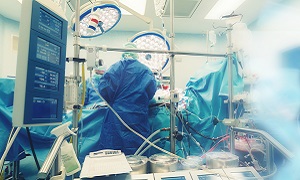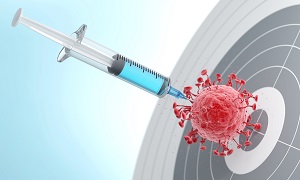Best Doctors in India for Kidney Cancer Treatment
Best Hospitals in India for Kidney Cancer Treatment
CK Birla Hospital, Gurugram
- City: Gurugram, India
Hospital Highlights:
- The CK Birla Hospital in Gurugram is a NABH-accredited multi-specialty hospital.
- The hospital strives to increase the quality of healthcare by focusing on UK NHS nurse and midwife training requirements. Policies and practices derived from the National Institute for Health and Treatment Excellence (NICE) recommendations in the United Kingdom ensuring that a strong focus on safety, high-quality clinical care, and sanitation is maintained.
- The hospital’s cutting-edge technology and facilities allow for real-time communication and seamless collaboration among caregivers, ensuring accuracy and the best possible results. Those with foreign experience and accreditations make up part of the hospital’s team of clinicians.
KIMS Hospital, Hyderabad
- City: Hyderabad, India
Hospital Highlights:
- KIMS Hospital (a brand name of Krishna Institute of Medical Sciences) is one of the largest and best multi-speciality hospitals in Hyderabad. The hospital provides various treatments to an enormous number of patients.
- The hospital has a capacity of more than 3000 beds. KIMS Hospitals offers different healthcare services in more than 25 specialities and super specialities.
- The hospital is equipped with modern medical equipment and technology. It has robotic equipment to provide minimal invasive techniques for patients.
- The hospital is aimed at providing world-class healthcare facilities and services at an affordable cost for patients.
- The various specialities and departments of the hospital include neurosciences, gastroenterology & hepatology, robotic science, reproductive sciences, dental science, oncological sciences, organ transplantation, heart and lung transplantation and mother and child care.
Fortis Hospital, Shalimar Bagh
- City: New Delhi, India
Hospital Highlights:
- Fortis Hospital in Shalimar Bagh is a multi-super specialty hospital that strives to provide world-class patient care by leaving no stone unturned.
- Fortis, Shalimar Bagh, with 262 beds and a 7.34-acre footprint, provides the best level of medical care through its team of doctors, nurses, technicians, and management professionals.
Reliance Hospital, Mumbai
- City: Mumbai, India
Hospital Highlights:
- Reliance Hospital is one of the best super-specialty care hospitals in Navi Mumbai.
- The main purpose of this hospital is to become a trustworthy place for the best health and hope for society. The hospital is well connected to the suburbs of Mumbai and Navi Mumbai.
- The hospital has various specialty departments, viz., Accident & Emergency, Anesthesiology, Dental Services, Dermatology, Diabetology, Dietetics Nutrition, Endocrinology, ENT, Gastroenterology, General Surgery, Gynaecology And Obstetrics, Hepato Pancreato Biliary Surgery, Infectious Disease, Internal Medicine, Interventional Radiology, Laboratory Medicine, Minimal Access Laparoscopic Surgery, Nephrology, Neurosciences, Opthalmology, Orthopaedics, Paediatrics, Pain Management Palliative Care, Physical Medicine Rehabilitation, Plastic And Reconstructive Surgery, Psychiatry, Pulmonary Medicine, Radiology, Rheumatology, Transplant, Urology Andrology, Vascular Surgery
Lilavati Hospital & Research Centre, Mumbai
- City: Mumbai, India
Hospital Highlights:
- Lilavati Hospital & Research Centre is India’s premier multi-speciality tertiary care hospital and has been recognised as a global medical excellence centre.
- Lilavati Hospital & Research Centre has built an unrivalled level of trust with its patients over the years, thanks to a solid foundation that comprises cutting-edge facilities, the best medical competence, research, education, and charity endeavours.
- The hospital is quite proud of the fact that it now serves patients from all kinds of backgrounds, not just from the United States but from all around the world.
- The hospital has a total of 323 beds, one of the largest Intensive Care Units (ICUs), 12 Operation Theatres with modern amenities, over 300 consultants, and almost 1,800 personnel.
Kidney Cancer
Symptoms
Kidney cancer generally doesn’t show any signs or symptoms in the early stages. In time, there might be certain signs and symptoms which can include the following:
- Blood in your urine
- Pain in your back or side
- Loss of appetite
- Unexplained weight loss
- Tiredness
- Fever
If you keep experiencing any persistent signs or symptoms that seem worrisome, you should consider making an appointment with your doctor.
Causes
In the majority of cases, doctors are not sure, what exactly the cause of kidney cancer is. However, they do know that kidney cancer begins when certain cells in the kidney develop certain changes or mutations in their DNA. A cell’s DNA contains all the instructions on what to do. The changes instruct the cells to grow as well as divide rapidly. Thus, these accumulating abnormal cells form a tumor which may extend beyond the kidney. Some cells can also break off and spread to other parts of the body.
Certain factors are known to increase the risk of kidney cancer. They include the following:
Older age- With age, your risk of kidney cancer also increases.
Smoking- Smokers have a greater risk of kidney cancer than those who don’t smoke. If you quit smoking, the risk of kidney cancer decreases.
High blood pressure (hypertension)- High blood pressure also increases your risk of kidney cancer.
Treatment for kidney failure- People who receive long-term dialysis to treat chronic kidney failure are also at risk of developing kidney cancer.
Obesity- Obese people have a high risk of kidney cancer as well, as compared to people having a healthy weight.
Family history of kidney cancer- If family members have had the disease, then the risk of kidney cancer gets higher.
Certain inherited syndromes- People who are born with certain inherited syndromes can also have a higher risk of kidney cancer. Some of these syndromes include von Hippel-Lindau disease, Birt-Hogg-Dube syndrome, hereditary papillary renal cell carcinoma, tuberous sclerosis complex, or familial renal cancer.
Diagnosis
There are multiple tests and procedures used in the diagnosis of kidney cancer. They include:
Blood and Urine tests
Imaging tests
Kidney biopsy
A kidney biopsy involves your doctor removing a small sample of cells from a suspicious area of your kidney. The sample is next tested in a lab to look for any signs of cancer. This procedure is not always needed.
Once your doctor is able to identify the kidney lesion that might be kidney cancer, the next step for him/her is to determine the extent or stage of cancer. For this, additional CT scans or other imaging tests might be required, if your doctor feels appropriate.
The stages of kidney cancer are indicated from I to IV. The lowest stages indicating the cancer is confined to the kidney, and at stage IV, the cancer is considered advanced and might have spread to other areas of the body.
Treatment
Treatment options generally depend on various factors, which include overall health, type, and stage of kidney cancer, personal preferences, etc.
Surgery
Embolization
Cryoablation
Chemotherapy

Radiation Therapy
Immunotherapy
Targeted therapy
Prevention
To reduce your risk of kidney cancer, it is important to take steps to improve your overall health. If you smoke, try to quit. Work to maintain a healthy weight as well, if you are obese or overweight.
If you are having high blood pressure, it is important to keep it in control.












